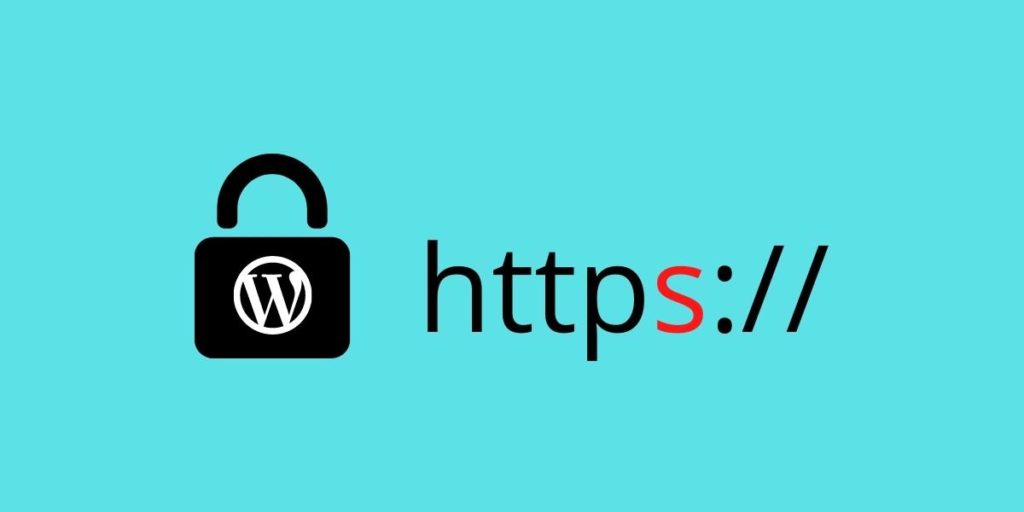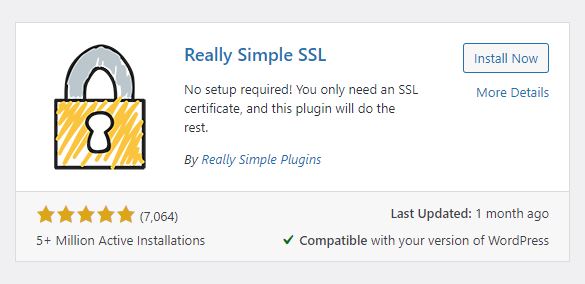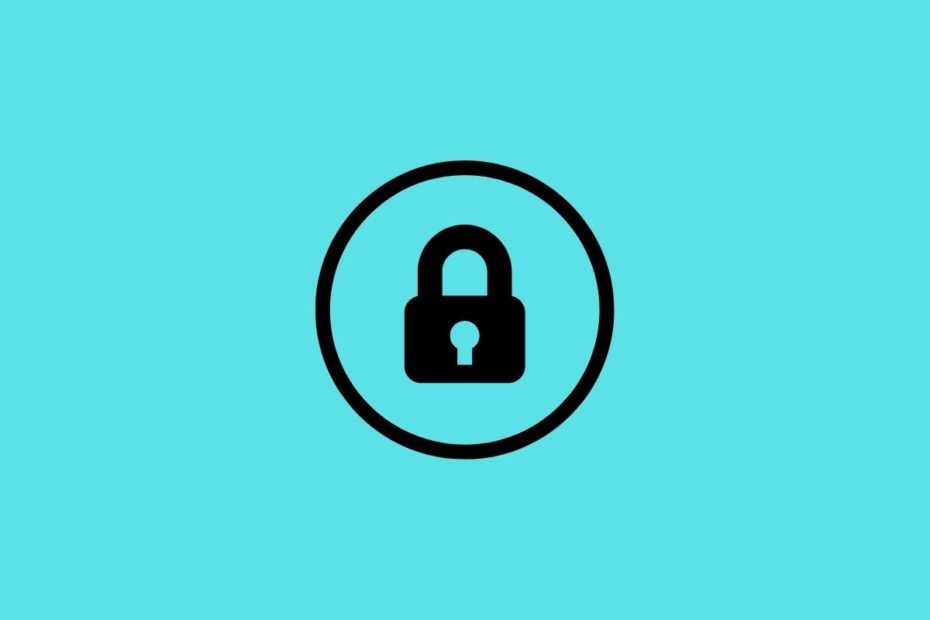What is an SSL Certificate? In simple terms, it is a form of security that allows you to keep your website and every user on your website secure. It also prevents attackers from creating or hacking your website.
This form of protection ensures that the traffic from/to your website is encrypted and that nobody else has access to it.
How to get an SSL certificate for free?
Most web hosting companies offer free SSL certificates nowadays.
When you go with a web host that offers one-click install for SSL certificates, you reduce the chances of breaking your website in the process of installing it.
Up until 2020, you had to download a plugin to enable SSL security.
However, with the new WordPress update, you no longer need to install any plugins just for SSL. Now you can do it with simple clicks, and you’re ready to go.
Ps. You should always backup your website before making any significant changes, including this one!
First, make sure the SSL option has been enabled by your web host. You can check this by either login into your cPanel (the steps are different for each host), or simply by contacting your web host.

Here’s how you enable the SSL certificate without a plugin:
- Log into your WordPress dashboard.
- Click on the Tools tab.
- Click on Site Health.
- Click on “Your site does not use HTTPS”
- Click on “Update your site to use HTTPS”

Once you’ve completed the last step, your website should now redirect the content to HTTPS.
Here’s how you enable the SSL certificate with a plugin:
Do not forget to backup your website before you proceed with these steps.
- Log into your WordPress dashboard.
- Click on Plugins.
- Select Add New.
- On the top right, search for Really Simple SSL.
- Install & Activate the plugin.
- On the redirected page, Click Go ahead, activate SSL!

Is an SSL certificate important?
Yes! The SSL certificate is necessary for every website. Whether you’re asking for user information or not, it still protects your website’s data from outsiders.
One would argue that an SSL certificate is required on every website.
If you don’t enable the SSL certificate on your website, you are putting your website, and your website visitors at risk regardless of what information they input on your website.
Especially if you are running an eCommerce.
Customers can be hesitant when it comes to using their payment info online. When you have the SSL certification enabled, your browser displays a padlock on the top left.
In this event, every single piece of information is encrypted.
From usernames, email addresses, credit card information, mailing addresses, Social security, and much more.
This ultimately proves that your website data is encrypted and secured.
List of web hosts offering free SSL certificates:
— Siteground
— A2 Hosting
— Bluehost
— HostGator
— InMotion Hosting
— WP Engine
— Kinsta
— CloudWays
— GreenGeeks
What if the SSL certificate expires?
Any SSL certificate expires for security reasons.
Your web host should be on top of this and renew it as soon as it expires, if not before.
Your web host would typically create a new Certificate Signing Request Code. This is always handled by your host, and it’s done on the backend.
However, if you run into some issues before or after updating your SSL settings, feel free to contact your web host service, and they will be able to further assist you.
Most web host companies provide a tech support service, so they should be able to assist you in regards to this, or any other issues you might encounter.
Read more about WordPress here.
Latest Posts
- What do we know about the iPhone 15 so far?
- Google Bringing ChatGPT to Chrome?
- IKEA’s New Smart Air Quality Sensor – VINDSTYRKA
- Opera joins the Artificial Intelligence Race – Opera to add ChatGPT features to its browser
- Google Bard! Google’s answer to ChatGPT fell flat on its face.
- ChatGPT passes MBA Test







Pingback: Learn About The Importance Of Website A Backup | EpicMat
Pingback: 5 Easy Ways To Speed Up Your WordPress Website | EpicMat